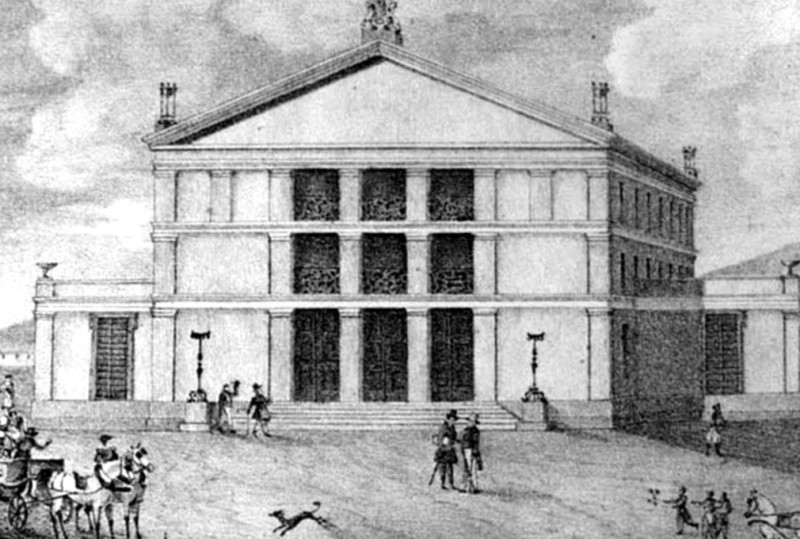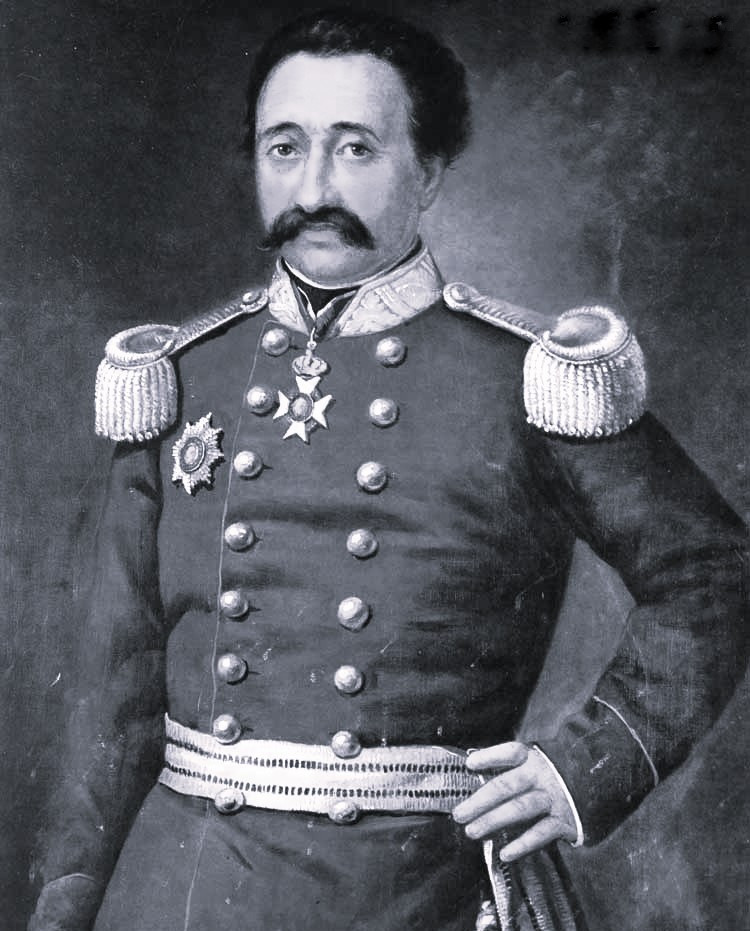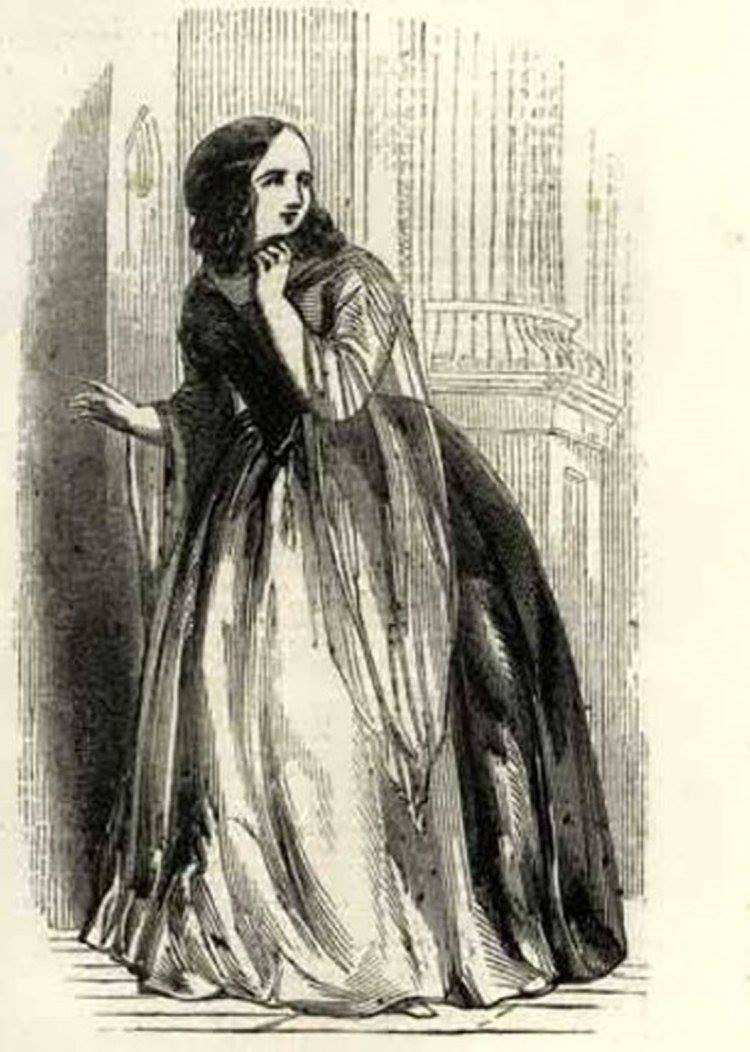“The old Londo, where he doesn’t have a single tooth, was spoiled by Rita Basso of the theater and she wasted so many thalers giving him other peaches…” wrote Makrygiannis in his famous Memoirs
There are no witnesses to her charm or beauty. In the first half of the 19th century, photography is still an art to be explored, a few drawings by amateur cartoonists for the needs of the press are anything but reliable documents, and certainly to those who live and know this era, after centuries it will be a faint ” bleak” dot in History. However, written records will be saved, from which the historian of the future will be convinced that she the woman once captured the minds of the male population of Athens.
“The chronicler of that time does not mention whether Basso was beautiful, but if one relies on the fact that she had driven all the Athenians crazy at the time, he must admit that Ritta was very beautiful…” he would publish under the title “Ritta Basso, the goissa” on October 11, 1928, in his theatrical backstage column, the publication “Bouquet” by Konstantinos Theodoropoulos.
Civil war between “Rites” and “anti-Rites”
In November 1840, the local press advertised “Lucia of Lamermouro” Donizetti’s melodrama, with which the first winter stone-built theater of free Athens, the “Boukura” theater on Menandrou Street, would be inaugurated. And during these 35 days and nights that will stay in the capital, its protagonist, the prima donna Rita Bassothe population of the city will be divided into two camps: To her passionate admirers, who lay fortunes at her feet, and to the others, her sworn warriors – “anti-Rites” they call them – who in her own person fight the Italian theater as guilty of “corrupting the morals of users and honest citizens”.
The truth is that in this first 10 years of Otto’s reign in the newly created Greek state, the local theater is in its infancy. Some traveling groups present amateur spectacles, where the male gender prevails, as the participation of women in this sector is also prohibited. At the time when in Greece the female roles are performed by men, who dress up as women, in Italy, the already matured Italian melodrama highlights female protagonists, who are worshiped as goddesses throughout Europe. Thus, Othonas has chosen to subsidize Italian creations, bringing to Bukura performances that gather audiences from all walks of life. de Basso is the first woman that the Athenians will see on stage and the dealers make sure to emphasize this very… originality: “run, run… tonight in the theater the woman will be played by a real woman”!
Most of them uneducated about opera, the male spectators prefer to enjoy the presence of women on stage, who, when they are skilled, cause scandals, with Lucia’s soprano, Basso, being the first and best. Every night, after the performance, between wild applause, at the feet of the protagonist “land” from flowers and jewels to zarzavati and chickens! It is even said that at one of these enthusiastic events of the spectators, an Athenian landowner shouts from the gallery “for you, my lady, let the old vine go too”, confessing that the vine that he had laboriously and not-so-legally taken in in his possession he intends to “kill” it on her apron… No one will be left to certify whether the particular asset was indeed “deposited” to the prima donna. What is certain is that his phrase will enter and enrich the quiver of verbal popular philosophy…
“Bravo, Lita”…
The mayor of Athens Kallifronas, the English ambassador in Athens, Lyons, as well as the head of the English party, leader of the Londos revolution, sworn bachelor and fanatical lover of the female sex, are said to have fallen in love with the young protagonist, among many others. for this weakness he will be blasted by General Makrygiannis in his famous Memoirs.
“Around 1840 young and old have already lost their means and Greece is being destroyed. The nation has all but disappeared […] you visited the theater to teach us paralysis and the children where they are sent to be enlightened letters and virtue enlightened the singing and morals of the theater and sell their books the students go to listen to Rita Basso the singer of the theater […] the elders grumbled […] the old Londo, where he doesn’t have a single tooth, was spoiled by Rita Basso of the theater and made him lose so many thalers by giving other peaches…” Makrygiannis will testify.
Indeed, it seems that the reveler from Kotzambas gets caught up in the love of the Italian girl Aoidou and wastes his life for her sake, once reaching the point of asking for help from his brothers Anastasis and Loukas. And have her cheering Rita on stage, “Bravo, Lita,” because, you see, she really is a slob and can’t make a rudimentary “r.” The lord of Vostitsa, an eminent provost, becomes a laughing stock in secular Athens… Only when Rita leaves for her homeland, is he left alone trying unsuccessfully to make ends meet with a pension of 220 drachmas.
But the other two big fans of the prima donna, Callifronas and Lyons, will be involved in a childish scandal for her eyes, which almost caused a Greek-English diplomatic episode… The matter is revealed years later by the newspaper “Acropoli”. At a reception, which Lyons had organized in honor of Basso, an event in which she would also attend, the ambassador… avoided calling his “dissident” mayor and he did not fail to show him his displeasure.
A few days later, he left the streetlight outside the embassy off (it caused the ambassador’s secretary to fall and break his leg), cut off the building’s water supply and ordered that its garbage not be collected. When Lyons sent a man to complain to the mayor, he received Callifron’s scathing comment: “Strange! Does His Excellency know that there is a mayor in Athens?”
Won and… married
Shortly before the end of Rita’s performances in Athens, it is known that two final performances of Lucia di Lammermoor will be given, in honor of the prima donna, who “so charmed the Athenian public”, and part of the proceeds will be allocated to her hospital and almshouse city.
Spectators, in addition to the entrance ticket, are invited to offer the artist whatever they wish (gold coins, jewelry, etc.).
After the end of the second performance, a report from the magazine “Sagittarius”, published by the regal poet and later professor of Botany at the University of Athens, Theodoros Orphanidis, makes some titillating revelations: “Lack of gold coins in Athens! The money changers ask for one drachma more than their value for each coin. Do you want to know the reason for this deficiency? Behold: Mrs. Rita Basso, a leading actress in the local Italian theater, gave her beneficial evening. They ran, therefore, gathering the gold with eagerness, in order to entrust it to the altar of the enchanting siren. Through this siren, many “uncritical” young people sold their books, “officials” took out loans with an interest of 30% of their monthly salary, and funny ones say that confessions were also given! And the French traveler Jean Bisson, who was at this particular performance, among his impressions from the visit to Athens, will write that “during the honor vespers the released doves fluttered above the heads of the actors and spectators and together with money and gifts were offered to the artist and many poems”.
Some time after the two honorary performances, the proceeds of which were intended for charitable purposes, and the departure of the Italian diva from Athens, it became known that those collections had reached the impressive amount of 30,500 drachmas. However, no institution saw even a drachma in its coffers…
Leaving Athens, however, it seems that the alluring Aoidos won not only hearts and not inconsiderable income from her appearances in Boukura, but also a husband, who will never be mentioned by the Greek press of the time.
The information about her marriage, and indeed in Athens, will be published in an English publication, which will glorify her performance in the opera “Hernanis” by Verdi, in the winter of 1845 at Her Majesty’s Theater in London.
To the disappointment of her fans everywhere, Mrs. Basso, during her appearances in Athens, met, fell in love and married Joseph Borio, a civil engineer, one of the scientists brought by Othon from abroad to set up the Greek capital. Therefore, the scandalous prima donna, whom the Greek newspapers once called “The Enchanting Siren” will henceforth be called Rita Basso – Borio and dedicate her songs to her husband…
Source: Skai
I have worked as a journalist for over 10 years, and my work has been featured on many different news websites. I am also an author, and my work has been published in several books. I specialize in opinion writing, and I often write about current events and controversial topics. I am a very well-rounded writer, and I have a lot of experience in different areas of journalism. I am a very hard worker, and I am always willing to put in the extra effort to get the job done.













